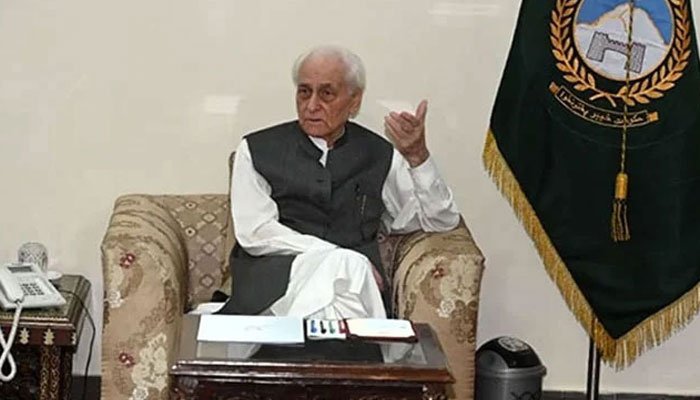The recent passing of Khyber Pakhtunkhwa’s Chief Minister, Muhammad Azam Khan, has set in motion a series of political and legal challenges in the province. Khan’s untimely demise has not only created a leadership vacuum but also raised questions about the constitutional and legal mechanisms governing the appointment of a new Chief Minister.
On the evening of the fateful day, Chief Minister Azam Khan was rushed to the hospital due to severe health complications. Unfortunately, his condition deteriorated rapidly, and he could not be revived, leading to his passing. Notable dignitaries, including Governor Ghulam Ali, the Sindh Chief Minister Murad Ali Shah, and President Arif Alvi, expressed their condolences on Khan’s passing.
Following Azam Khan’s demise, the Khyber Pakhtunkhwa Cabinet has faced a period of uncertainty. With the chief executive position vacant, Governor Ghulam Ali has taken on the responsibility of overseeing administrative and constitutional matters within the province. This interim arrangement raises pertinent questions regarding the appointment of a new Chief Minister and the legal procedures that should be followed.
Constitutionally, the situation regarding the appointment of a new Chief Minister is not explicitly addressed. The absence of clear directives in the constitution has triggered a debate on the proper procedure. Legal experts point to Article 224 and Article 224-A of the constitution as the relevant provisions for appointing a caretaker Chief Minister in such situations. These articles lay out the procedure to be followed if the chief executive of a province is no longer in office. However, they do not provide explicit guidance on the appointment process.
In the absence of a clear consensus among the involved parties, the matter of selecting a new Chief Minister will be referred to the Election Commission, as it is responsible for ensuring constitutional requirements are met. Legal expert Babar Khan Yusufzai emphasized the importance of seeking legal remedies when faced with such constitutional ambiguities.
One important aspect of this process is that the Election Commission will examine the compliance with the constitution and other legal requirements while selecting a new Chief Minister. The Governor of Khyber Pakhtunkhwa will play a pivotal role in this process, as will the Senate leader, the leader of the provincial assembly, and six members of the standing committee. If a consensus is not reached, the matter will be referred to a parliamentary committee. The parliamentary committee, chaired by the Speaker of the provincial assembly, will make the final decision. In case of further disagreements, the Election Commission will step in to resolve the issue.
Legal experts maintain that the ambiguity surrounding the selection process necessitates a comprehensive review of the constitutional provisions involved. Article 224 and Article 224-A may not provide explicit guidelines, but the situation demands an effective resolution, as it has the potential to impact the governance and political landscape of the province.
The legal viewpoint is not the only consideration. The passing of Chief Minister Azam Khan has raised broader constitutional questions. The vacuum in leadership, even if temporary, highlights the need for more comprehensive legal frameworks in such scenarios. The constitution of Pakistan should address these constitutional gaps to ensure a smoother transition and avoid any crisis in the future.
As the process unfolds, it is essential to respect the principles of democracy, the rule of law, and constitutional provisions. The appointment of a new Chief Minister should be guided by legal norms, and the Election Commission must ensure transparency and fairness throughout the proceedings.
The unfortunate passing of Muhammad Azam Khan, Chief Minister of Khyber Pakhtunkhwa, has exposed legal ambiguities in the constitutional framework for the appointment of a new Chief Minister. The absence of clear guidelines in the constitution has necessitated a careful legal review, which will be carried out by the Election Commission. Balancing constitutional imperatives and legal procedures is crucial to ensuring a smooth transition of leadership in the province and upholding democratic values. The incident underscores the need for a more comprehensive legal framework to address such contingencies in the future.



